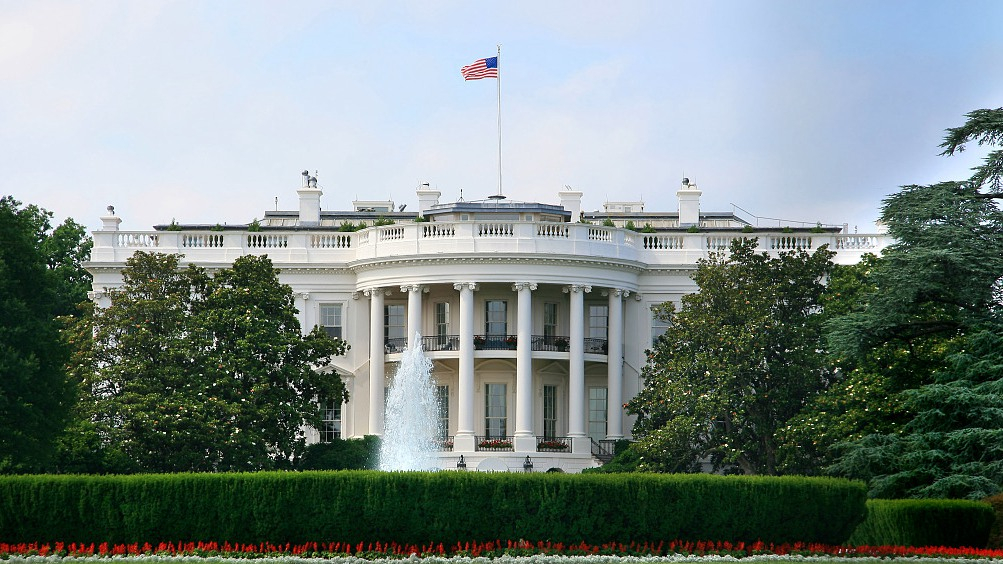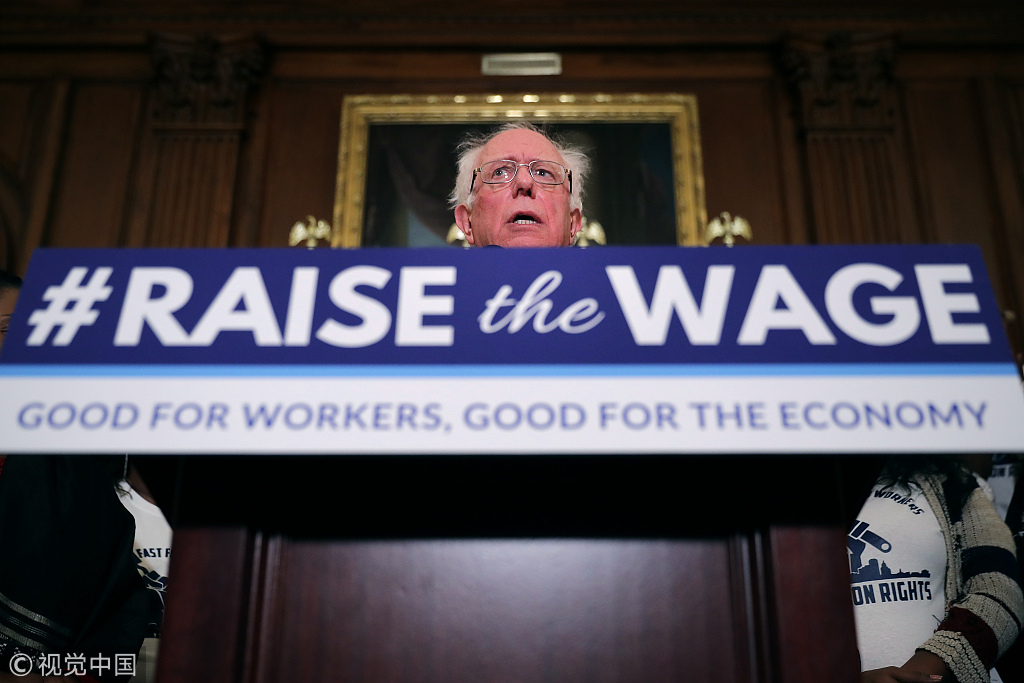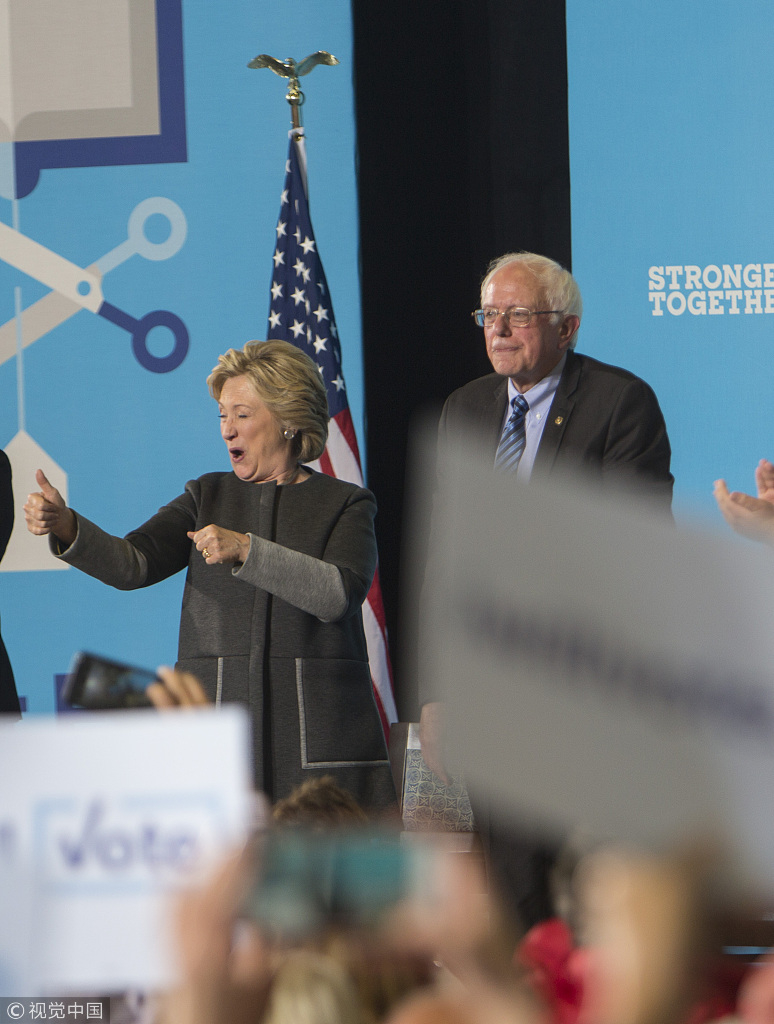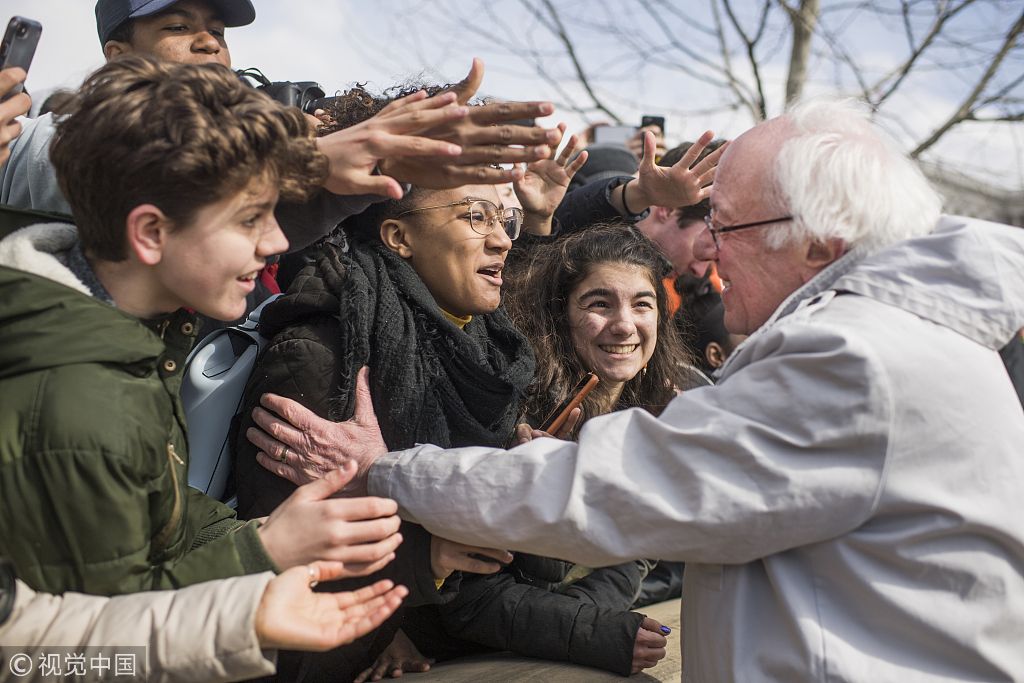
Opinion
15:05, 20-Feb-2019
Can Bernie Sanders do it in 2020?
Tom Fowdy

Editor's note: Tom Fowdy, who graduated with an MSc in Chinese Studies from Oxford University and majored in politics at Durham University, writes on the international relations of China and the Democratic People's Republic of Korea. The article reflects the author's views, and not necessarily those of CGTN.
Last night, U.S. senator for Vermont Bernie Sanders announced his campaign to run for the Democratic Party nomination for president of the United States in 2020.
The announcement came after months of speculation as to whether the veteran congressman was going to make a second bid, as scores of candidates within the party have also come forward to declare their bids. Bernie is known for his unapologetic views as a self-described "Democratic Socialist." Following his 2016 campaign, the senator gained favor among disillusioned young voters, which made him a thorn in the side of Hillary Clinton.
Undoubtedly, Bernie will enter the race in a much stronger position than before. But can he make the grade?

Bernie Sanders speaks during an event to introduce the Raise The Wage Act in the Rayburn Room at the U.S. Capitol in Washington, DC, January 16, 2019. /VCG Photo
Bernie Sanders speaks during an event to introduce the Raise The Wage Act in the Rayburn Room at the U.S. Capitol in Washington, DC, January 16, 2019. /VCG Photo
Despite the enthusiasm for him among some portions of the electorate, Sanders faces a considerable number of uphill challenges including his own age, the appeal of a left-wing candidate to the wider American public, the middle-class and of course the hysterical fears of socialism which abound in the country.
Rather than being a popular underdog, Bernie's campaign will be taken more seriously this time than ever before. Things will certainly get messy. The Democratic Party itself is only the first hurdle.
The first question we must ask concerning Bernie's campaign, is that can he pull together a winning coalition of Democrat voters to have a successful run at the nomination itself?
This is a hard factor to estimate at such an early stage, especially given there are so many candidates in the Democratic field and in politics of this day and age, things can change in profound and unexpected ways. One thing seems quite certain though and that is, to win the nomination, the leading candidate must gain support from all wings of the party itself, including the large and hegemonic "center" voters, who are middle-class and can swing between the Democrats and Republicans at times.
In 2016, Bernie was popular yet struggled in this specific area against the more centrist Hillary Clinton.

Democratic Presidential candidate Hillary Clinton (L) campaigning with former rival Bernie Sanders at University of New Hampshire, U.S., September 28, 2016. /VCG Photo
Democratic Presidential candidate Hillary Clinton (L) campaigning with former rival Bernie Sanders at University of New Hampshire, U.S., September 28, 2016. /VCG Photo
Statistics from the Democratic primaries found that while Bernie had an overwhelming lead amongst young white voters, he struggled with ethnic minorities, particularly African Americans, and older voters who opted for his rival.
The reasons behind this can largely be singled out to his appeal for radical change offering young people more incentives, with older Democrats with a more established economic stake having less enthusiasm for such. Like Jeremy Corbyn in the United Kingdom, Bernie's campaign has a strong "cosmopolitan" feel to it, limited to young people in urban centers, exposing a distinguishing rift between those of the left and the political center.
For his upcoming campaign, Sanders will need to fix this issue and broaden his appeal quickly in contending with centrist big gun Democrats, including Elizabeth Warren and potentially, Joe Biden, who is widely speculated to be pitching his own bid.
While Bernie has high favorability ratings and strong advantages over most of the candidates, it is this type of rival that will cause him the most problems.
Given this, the primaries are likely to be much more aggressive than that of 2016, where Clinton was, for the most part, the solid front-runner. Fast forward to 2020, we are no longer talking about Bernie Sanders as that adorable granddad running an insurgency campaign which is loved much more owing the stakes being low. Now it is very serious. Sanders will be treated and scrutinized a lot more thoroughly as a potential President to be.
Yet the hurdles don't end there.

Bernie Sanders greets demonstrators while attending a rally on the West Front of the Capitol to call on Congress to act on gun violence prevention during a national walkout by students, March 14, 2018. /VCG Photo
Bernie Sanders greets demonstrators while attending a rally on the West Front of the Capitol to call on Congress to act on gun violence prevention during a national walkout by students, March 14, 2018. /VCG Photo
If he is to coin the Democratic nomination as his own, will he beat Trump?
As much as the president remains unpopular with large portions of the electorate, it will not be easy. A self-described Democratic socialist will have a difficult time appealing to Republican voters who will not hesitate to back the status quo.
Appeals to issues such as the environment and opposition to the war will not change the incentive of middle-class swing voters much either, especially when you are surfing against a tsunami of abject American hysteria against socialism itself.
This is not to say Bernie can never win. With blue-collar voters, young people, disillusioned non-voters, committed democrats and ethnic minorities there is absolutely potential to build a winning team, but as I noted above: from the very beginning he must utilize a strategy to band all of these groups together in getting not just through his own party first, but that of the country itself.
(If you want to contribute and have specific expertise, please contact us opinions@cgtn.com.)

SITEMAP
Copyright © 2018 CGTN. Beijing ICP prepared NO.16065310-3
Copyright © 2018 CGTN. Beijing ICP prepared NO.16065310-3